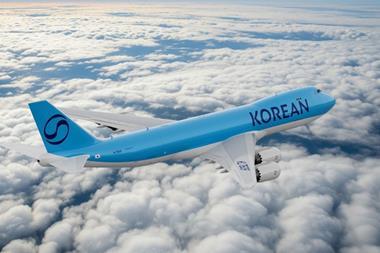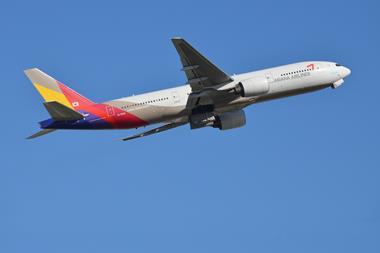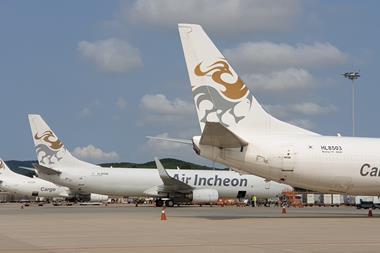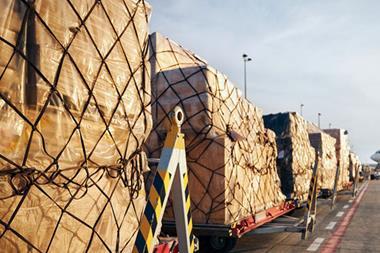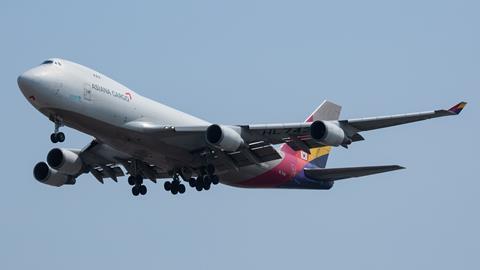
Korean Air has today completed the $1.3bn acquisition of Asiana Airlines in a deal that will create one of the largest airlines in the Asia Pacific region and result in the sale of the latter’s cargo business.
Earlier today, Korean Air acquired 131,578,947 newly issued shares of Asiana Airlines, which represents a 63.88% ownership stake and makes Asiana Airlines a subsidiary of Korean Air.
This brings the total investment through the third-party allotment capital increase to KRW1.5trn, including the previously paid deposit of KRW300bn and an interim payment of KRW400bn.
Korean Air plans to complete the integration with Asiana Airlines within two years. No job losses are expected.
“The integration strategy includes network optimization through diversified flight schedules on overlapping routes, service expansion to new destinations and enhanced safety investments,” Korean said.
“The merger aims to strengthen national aviation industry competitiveness, enhance Incheon Airport’s hub capabilities and expand global network reach.
“The integration will proceed without workforce restructuring. The combined organisation projects natural staff growth through business expansion, with employees in overlapping functions being reassigned within the organisation.”
The takeover process began in November 2020 but was delayed by the Covid pandemic and issues in gaining approval for the deal.
The airline won approval from European Commission regulators last month, after initially opposing the deal on the grounds that it would reduce competition on passenger routes between South Korea and France, Germany, Italy, and Spain.
Korean had to make several concessions in order to get the deal pushed through, including the sale of Asiana’s cargo business to Air Incheon.
Korean also transferred the operations of four European routes to low-cost rival T’way Air.
Air Incheon, established in 2012, is the only South Korean airline entirely dedicated to freighter cargo transport. The sale of Asiana’s cargo business includes freighter aircraft, slots, traffic rights, flight crew, and other employees, as well as customer cargo contracts.
Fleet tracking sites show Asiana’s freighter fleet consists of 12 Boeing 747-400Fs and a single Boeing 767-300F.
Meanwhile, Air Inchoen’s fleet consists of four Boeing 737-800Fs.










